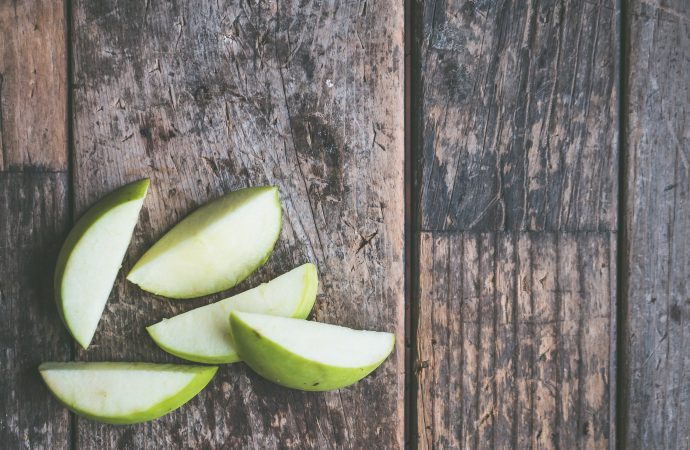Are you tired of biting into an apple only to find it brown and unappetizing? Browning in apples is a natural process that occurs when the enzymes and iron inside are exposed to oxygen. However, there are ways to prevent this from happening! In this blog post, we will share some tips and hacks for
Are you tired of biting into an apple only to find it brown and unappetizing? Browning in apples is a natural process that occurs when the enzymes and iron inside are exposed to oxygen. However, there are ways to prevent this from happening! In this blog post, we will share some tips and hacks for mastering the art of apple preservation, stopping browning in its tracks. Whether you’re packing apples for lunch or preparing a pie, these techniques will ensure your fruit stays fresh and appealing for longer. So let’s dive in!
What Causes Apples to Brown?
When you slice an apple, it doesn’t take long for the exposed flesh to turn brown. This is due to a chemical process called oxidation that occurs when the enzymes and iron inside are exposed to oxygen in the air. The browning of apples can also be accelerated by other factors such as temperature, humidity, acidity, and bruising.
When an apple is cut or damaged, its cells break open and release enzymes called polyphenol oxidase (PPO) into contact with oxygen from the air. PPO then reacts with substances known as phenolic compounds found in apples producing a brown pigment known as melanin.
The amount of acid present in an apple can also affect how quickly it turns brown. The more acidic an apple is, the slower it will turn brown because acids react with PPO before it has a chance to mix with oxygen.
Similarly, high temperatures like those used during cooking denature proteins within the fruit which results in faster browning while low temperatures slow down this reaction.
Now that we understand what causes apples to brown let’s explore some tips on how we can prevent or slow down this process so our fruit stays fresh and delicious!
How to Prevent Browning in Apples
Apples are a healthy snack that is rich in vitamins and fiber. However, when exposed to air, they tend to turn brown quickly. This can be unappetizing for many people and can even reduce the nutritional value of the fruit. To prevent browning in apples, there are several simple tips you can follow.
One way to prevent browning is by treating your sliced or cut apples with an acid solution such as lemon juice or vinegar before storing them. The acidity slows down the oxidation process that causes browning.
Another effective method is using honey or agave syrup instead of sugar when making apple dishes like pies or crisps. Honey contains antioxidants that inhibit enzymatic reactions which lead to browning.
Additionally, keeping your apples cold will also help slow down the chemical reaction responsible for browning. Store them in the fridge at temperatures between 30-40°F (-1°C – 4°C) to extend their shelf life and maintain their freshness.
Avoid peeling your apples if possible since exposing the flesh speeds up oxidation and leads to faster browning.
By following these simple tips, you’ll be able to enjoy crisp and fresh-looking apples while still reaping all their health benefits!
Tips for Storing Apples
Proper storage is key to preserving the freshness and flavor of apples. Here are some tips for storing your apples:
First, sort out any damaged or bruised apples as they will spoil quickly and can cause surrounding apples to spoil as well.
When it comes to temperature, a cool place around 32-40°F (0-4°C) is ideal for storing most apple varieties. A refrigerator crisper drawer works great if you don’t have a root cellar or cool pantry.
If you’re looking to store large quantities of apples for an extended period, consider investing in a cold storage unit. It’s important to note that not all apple varieties are suitable for long-term storage, so be sure to research which ones work best.
To prevent dehydration and maintain crispness, keep your apples away from ethylene-producing fruits like bananas or avocados. You can also place them in a plastic bag with small air holes poked into it.
Always wash your hands before handling fresh produce and avoid washing the fruit until just before use since excess moisture can speed up decay.
By following these simple tips, you’ll be able to enjoy fresh-tasting apples throughout their entire shelf life!
Conclusion
Mastering the art of apple preservation is easy if you follow the tips and hacks we have shared in this article. Preventing browning, storing apples properly, and choosing the right variety can all help extend the life of your apples.
Remember to always wash your apples before eating or preserving them. You can also try some of our favorite preservation methods like making apple sauce or dehydrating slices for a healthy snack option.
By using these tips, you’ll be able to stop browning and enjoy fresh, crisp apples all year round. So next time you’re at the grocery store or farmer’s market, don’t shy away from buying bulk quantities of apples – put these strategies into action and enjoy their sweetness long after they’ve been harvested!

















Leave a Comment
Your email address will not be published. Required fields are marked with *